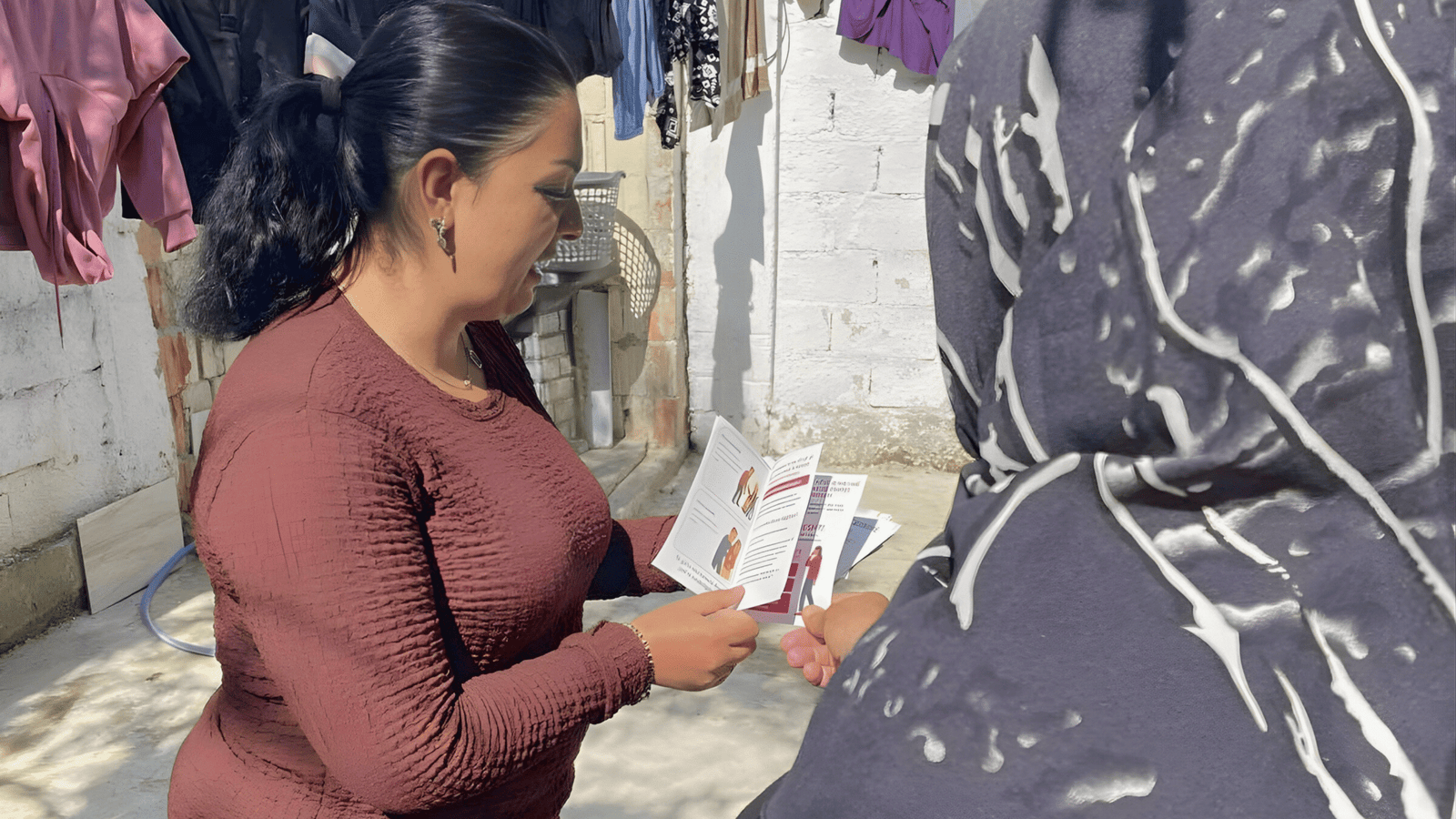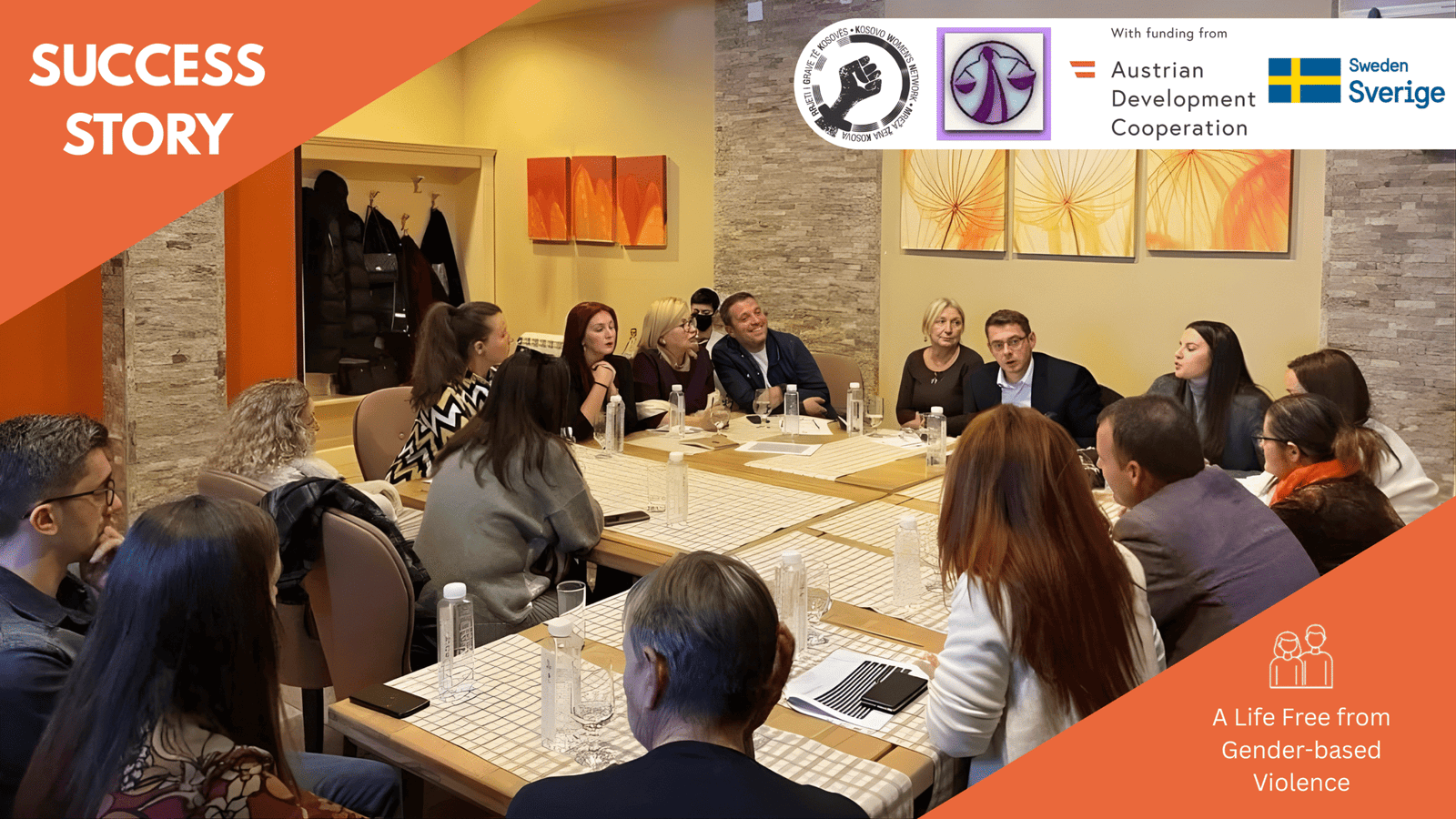Sexual harassment in public spaces remains widespread issue in Kosovo, experience suggests. However, it is seldom reported, so no reliable statistics exist. One reason for the absence of data is the lack of knowledge regarding procedures for documenting and reporting cases of sexual harassment. This became particularly apparent during the #TakeBackTheNight campaign against sexual harassment in public spaces, organized by the KWN-supported initiative FemACT (for more information click here).
On 12 Dec., KWN organized an interactive workshop on how to document and report sexual harassment. Participants included KWN members, FemACT activists and representatives from the Peer Educators Network (PEN)and Klubi Bonu Burrë (The Be a Man Club). At the same time, the workshop sought to collect input based on activists’ experiences to better inform recommendations for the the draft law on Anti-discrimination and the draft law on Gender Equality, which are currently being reviewed. KWN plans to provide specific recommendations on these draft laws to the Legal Office in the Office of the Prime Minister of Kosovo.
“It is frequently stated that the legal framework in Kosovo is good and that the problem lies in the lack of implementation only. In this workshop, you will learn about the many shortcomings of the legal framework itself,” said Donjeta Morina, FemACT Coordinator.
Ariana Qosaj-Mustafa, Lead Researcher at the Kosovar Institute for Policy Research and Developent (KIPRED) and simultaneously Chair of the KWN Board; as well as Tahire Haxholli, Lieutenant and Chief of the Sector on Domestic Violence at the Kosovo Police, were the trainers at this workshop.
During her presentation, Ariana Qosaj-Mustafa summarized the relevant laws relating to sexual harassment in Kosovo, including what remains uncovered. “Regardless of how many shortcoming the legal framework in Kosovo has, activists should know that international conventions are directly applicable to Kosovo,” she said. “The Convention for the Elimination of All Forms of Discrimination against Women (CEDAW) is but one example. This means that whenever we deal with a case related to sexual violence we can refer to international standards.” CEDAW, for example, is within the Constitution of the Republic of Kosovo and is therefore directly applicable.
Beyond the Constitution, sexual harassment is regulated through the Criminal Code, as well as the following four laws:
· Law 2004/3 on Anti-Discrimination in Kosovo;The purpose of this Law is prevention and combating discrimination, promotion of effective equality and putting into effect the principle of equal treatment of the citizens of Kosovo under the rule of Law.
· Law 2004/2 on Gender Equality in Kosovo; The present law shall preserve, treat and establish gender equality as a fundamental value for the democratic development of the Kosovo society, providing equal opportunities for both female and male participation in the political, economical, social, cultural and other fields of social life.
· Law No. 03/L-142 on Public Peace and Order; The purpose of this law is to regulate personal conduct in order to preserve public peace and order.
· Law No. 03/L-149 on Civil Service of the Republic of Kosovo; This law regulates the status of Civil Servants and the terms and conditions of their employment relationship with the institutions of the central and municipal administrations.
Although different articles of these laws touch upon the issue of sexual harassment, in general sanctions are very low and procedures unclear. The Law on Anti-discrimination is particularly vague: procedures are explained, but it is unclear which institution should implement them.
“In Kosovo, we have ideal laws, but they are not practical,” said Hanife Rushiti, a FemACT activist. Activists agreed that the legal framework, particularly definitions, procedures and sanctions needed to be much clearer in the new laws.
Another concern that has been raised by activists during the recent campaign is that fact that even when sexual harassment is reported to police, officers often do not take reports seriously or know how to handle them. Therefore, Lieutenant Tahire Haxholli informed participants about the Police Inspectorate, a sector of the police where one can complain if one’s requests are not taken seriously by police. For example, if police offers tell you to keep an issue to yourself and not to make a big deal out of it, you can report the police officers to this Sector.
“Victims of sexual violence do not have a specific gender or a specific age; and rape is not an impulsive crime that happens because of the way you are dressed or because you provoke someone,” Haxholli emphasized.
This workshop was supported by the Austrian Development Agency as part of KWN’s efforts to educate activists about the existing legal framework so that they can undertake more informed advocacy both relating to the new legal framework currently being drafted as well as towards the implementation of the current (and future) legal framework related to sexual harassment.






